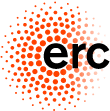 The Promise of the European Research Council Comes a Step Closer to Fulfillment.
(February 23, 2007)
The Promise of the European Research Council Comes a Step Closer to Fulfillment.
(February 23, 2007)|
|
|
|
|
|
|
News & Views item -
|
![]()
 The Promise of the European Research Council Comes a Step Closer to Fulfillment.
(February 23, 2007)
The Promise of the European Research Council Comes a Step Closer to Fulfillment.
(February 23, 2007)
On the invitation of the Editor in Chief of Science, Donald Kennedy, Helga Nowotny, then Chair of the European Research Advisory Board, provided the August 6, 2004 editorial "European Research Momentum". In it she wrote, "One of the six objectives of FP7 [Framework Programme 7], to begin in 2007, supports basic research and an ERC [European Research Council] that would encompass all disciplines, including the humanities and social sciences. The ERC mission would be to generously support the very best researchers, making them truly competitive on a global scale."
Now, some 31 months later, gestation is complete and the ERC will be officially launched in Berlin next week.
And just as it was originally envisaged, it is committed to funding the best fundamental research, free of regional and political agendas.
In the first instance grant applications will be restricted to young investigators, with a second call, for advanced investigators, to be announced later in the year. But according to the journal Nature "too few European universities are ready to host the recipients." [see below]
This year the ERC will have a budget of €300 million (A$500 million) and individual grants which can run for up to five years, will range between €100,000 (A$166,500) and €400,000 (A$666,000) per year. They are deliberately designed to be prestigious and with the relatively small first year's budget allocation competition is expected to be intense. However, as planned at present by 2013 the allocation will have climbed to €1.5 billion (A$2.5 billion) per annum.
Vetting the applications will be handled by twenty panels of experts, five in social sciences, eight in physical sciences and seven in life sciences, and specialist referees will be called upon by the panels as required.
The applications are to judged solely on merit, without reference to the nation involved.
However, the ability of the host institute to offer an appropriately supportive environment will also be assessed, and therefore, applicants may approach any university or research centre they deem appropriate.
But Nature points out, "The phrase 'without reference to nation' may at this point begin to seem disingenuous. Some countries are relatively inflexible in the conditions that their universities can offer individual scientists. Their universities may not, for example, be able to offer a salary attractive by local standards if they are hampered by fixed salary scales. In short, the most flexible universities will be best placed to attract ERC grant holders."
However, Nature sees this as "a wake-up call for universities to free themselves of their chains and become internationally competitive.
"When the German chancellor Angela Merkel opens the ERC launch next Tuesday [February 27], she will at the same time be launching a new phase in European research — but only for those universities that are up to the task.
Note added February 28: ScienceNow reports, "So far, ERC's scientific council--which counts many luminaries among its 22 members--is guarding its independence jealously, says Vice President Helga Nowotny. For instance, when the European Commission suggested a list of scientists who could serve on ERC's peer review panels, the council gave it a look, she says--but decided to go with its own list instead. Staying at arm's length from Brussels will be crucial to ERC's success, says John Marks, director of science and strategy at the European Science Foundation, a group of national funding agencies."